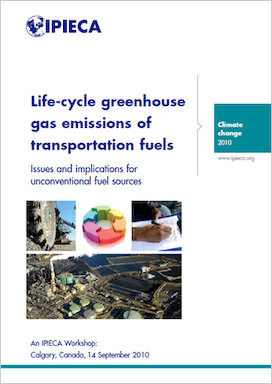The effectiveness and efficiency of regulatory and other policy approaches intended to reduce the greenhouse gas emissions from transportation fuels can hinge on the fuel life-cycle analysis (LCA). This report provides a summary of the workshop of the same name, convened in September 2010 by the Climate Change Working Group. It focuses on the LCA for transport fuels from unconventional hydrocarbon sources and associated regulatory issues and implications. Also, it examines these in the context of experience gained in the study of conventional hydrocarbon sources, biofuels, electric vehicles, and other alternatives.
Life-cycle greenhouse gas emissions of transportation fuels: issues and implications for unconventional fuel sources

Related resources
- 18 October 2021
Ipieca hosted a two-day workshop to convene the industry and its key stakeholders with the aim of building consensus and enhancing understanding of the importance, challenges and opportunities of carbon offsets as part of a broader carbon mitigation strategy.
- 26 February 2021
On 2 November 2020, Ipieca held a virtual methane workshop. This report summarizes the presentations and discussions that took place during the workshop.
- 15 August 2017
The report highlights some of the opportunities and challenges to decarbonize the transport sector, the importance of reducing emissions from agriculture and land use ...
- 1 November 2016
Ipieca held a workshop - Making CCS fly - that brought together more than 50 participants from across the oil and gas sector and expert communities to discuss the role, barriers and opportunities presented by CCS.



